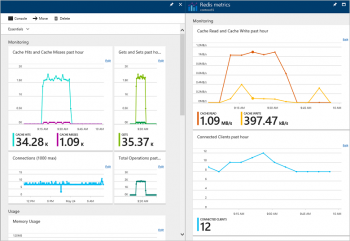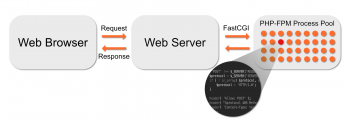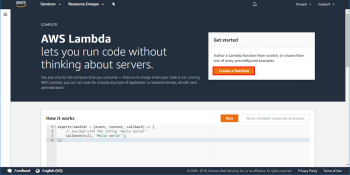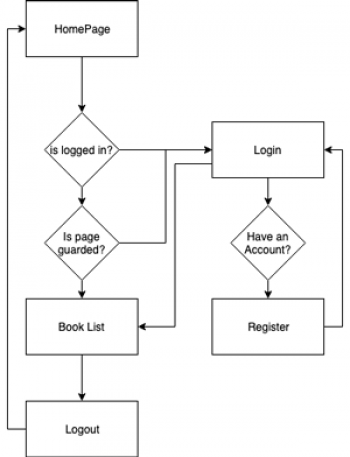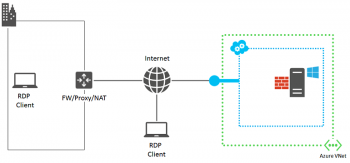Install and Use Logwatch on Linux Mint 20 - Step by Step Process ?
This article covers how to install the Logwatch utility on your Linux server. With Logwatch, you will be able to keep an eye on your server logs and hence, you can quickly figure out any possible issues.
You can easily customize Logwatch to your preference by modifying the parameters in the /etc/logwatch/conf path. It also provides something extra in the way of pre-written PERL scripts for making log parsing easier.
All the default settings are defined in the /usr/share/logwatch/default.conf/logwatch.conf file. The recommended practice is to leave this file intact and instead create your own configuration file at the /etc/logwatch/conf/ path by copying the original config file and then define your custom settings.
Logwatch comes with a tiered approach and there are 3 main locations where configuration details are defined:
- /usr/share/logwatch/default.conf/*
- /etc/logwatch/conf/dist.conf/*
- /etc/logwatch/conf/*
To install Logwatch on your server.
On Ubuntu:
$ sudo apt-get install logwatchOn Debian:
$ apt-get install logwatch
Usermod Linux Command with Examples
This article covers different use cases of using the usermod command. The usermod command in Linux is used to manage user properties at command line. The syntax of the usermod command is following:
$ usermod [option] [argument] username
Use pkill Command in Linux System - An overview ?
This article covers how to use the pkill command in Linux. pkill is basicity a wrapper around the pgrep program that only prints a list of matching processes.
The syntax for the pkill command is as follows:
$ pkill [OPTIONS] <PATTERN>The matching <PATTERN> is specified using extended regular expressions.
For more information about pkill command, visit the pkill man page or type man pkill in your terminal.
Other Linux commands:
- ps — Report the status of a process or processes.
- killall — Kill processes by name.
- kill — Send a signal to a process, affecting its behavior or killing it.
Rmmod Command in Linux - An Overview ?
This article covers the process of removing modules by using rmmod from the Linux kernel. In fact, rmmod is a simple program which removes (unloads) a module from the Linux kernel. In most cases, you will want to use modprobe with the -r option instead, as it is more robust and handles dependencies for you.
Important Linux System Commands:
- depmod — Generate a list of kernel module dependencies and associated map files.
- insmod — Insert a module into the Linux kernel.
- lsmod — Show the status of Linux kernel modules.
- modinfo — Show information about a Linux kernel module.
- modprobe — Add and remove modules from the Linux kernel.
Rename Files and Directories in Ubuntu 20.04 - How to do it ?
This article covers different methods to Rename Files and Directories Using Linux Terminal. We can rename files and directories with rename and mv commands in the Linux Terminal. The mv command can only rename one file at a time, but the rename command can rename multiple files simultaneously.
How to Rename Files and Directories Using the mv Command ?
The mv command can rename files and directories. It is also used to move files and directories from one location to another.
Syntax of mv Command:
$ mv [OPTIONS] source destinationThe source can be one or more files or directories, and the destination is always a single file or directory.
Migrate to AlmaLinux 8.4 from CentOS Linux - Step by Step Process ?
This article covers the process of migrating to AlmaLinux from CentOS 8. AlmaLinux OS is a new RHEL fork from the team at CloudLinux. It is meant to be a free Linux Operating System, developed in close co-operation with the community, and for the community. As of this article update, the release of AlmaLinux available is not stable fit for production use. AlmaLinux OS is now stable and can be used in Production environments.
To Migrate from CentOS 8 To AlmaLinux 8.4.
1. Download the almalinux-deploy.sh script:
$ curl -O https://raw.githubusercontent.com/AlmaLinux/almalinux-deploy/master/almalinux-deploy.sh2. Give the script execution bits:
$ chmod +x almalinux-deploy.sh3. Then run the script with the commands below:
$ sudo bash ./almalinux-deploy.sh
